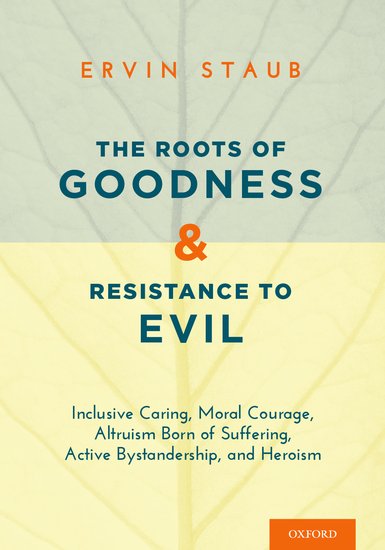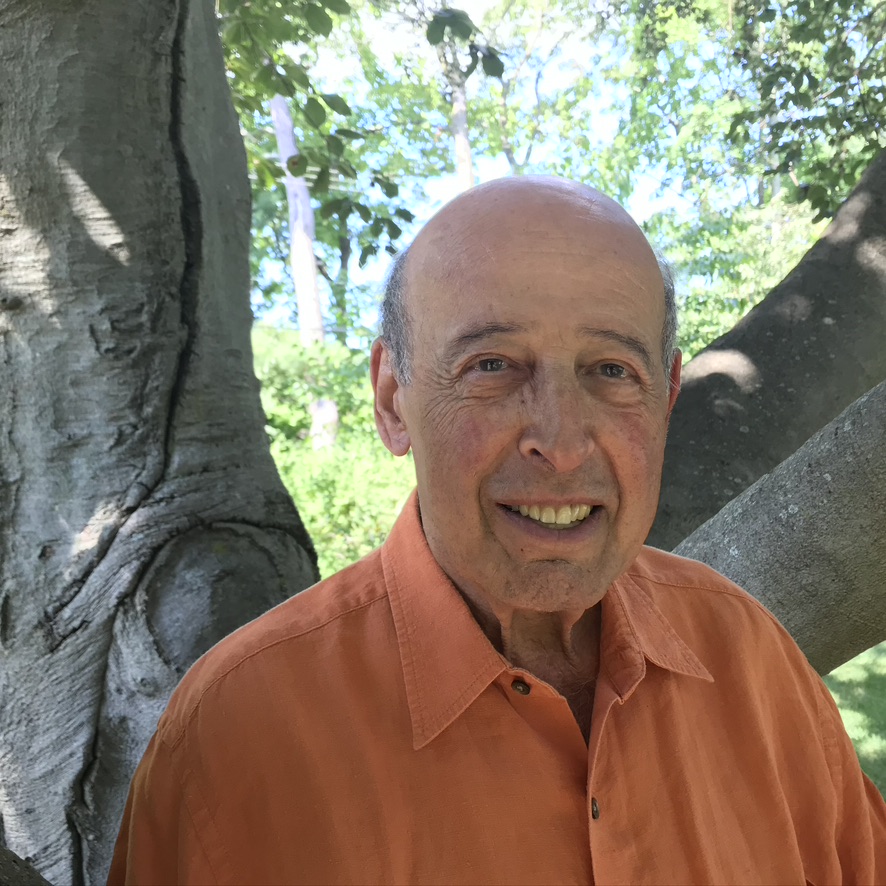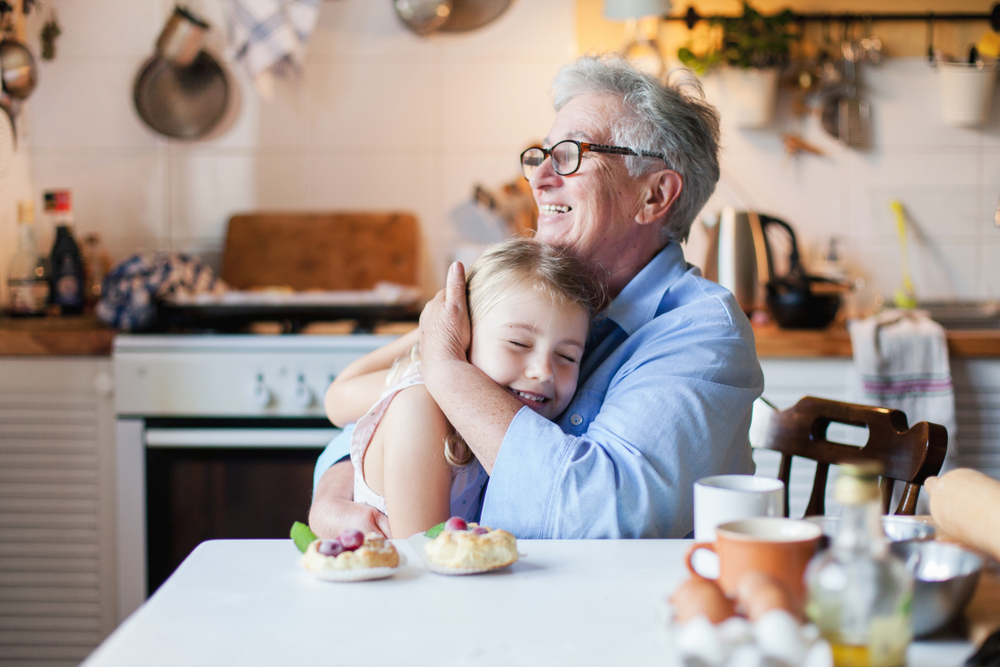Our needs or interests go way beyond material well-being. We deeply need and want security. We want close, loving relationships with family and friends, connection to a community, and a harmonious relationship to the world around us. These are required for our well-being. Deep connections to people, and to a community, are very satisfying. Even if aggression brings material gains, our aggressive behavior, as well as our passivity, affects our
connections to people. Taking positive action and seeing or knowing how others’ suffering diminishes and their well-being increases tends to enhance our own well-being. There is increasing amount of research that shows this.
Both acting in others’ behalf and seeing others do so are uplifting. People who spend money on others feel happy, at times even happier than if they spend money on themselves (Dunn, Aknin, & Norton, 2008). Somewhat surprisingly Dunn and associates found that around the world, in poor and rich countries, among poor and rich people, giving and spending money on others made people happier than spending money on themselves (mentioned in Seppala, 2013). Earlier interview studies also found that people who help others report more well-being and even happiness, although this is more likely when they do so more extensively rather than on a single occasion (Svoboda, 2013).
While with such an association we do not know whether it is helping that causes happiness or happier people help more, a number of studies have shown that giving money to a charity activates the “pleasure center” of the brain. In one study, when people gave to charities, both voluntarily but to a lesser extent even when they were “taxed” (part of the money they received in the study was simply taken for a charity), the same part of the brain became active as when they rewarded themselves (Harbaugh, Mayr, & Burghart, 2007). Helping others (Seppala, 2013), and even seeing others helping appears to be good for our health. Students who saw Mother Theresa tending to suffering Indian children had an increase in the number of immune cells in their blood (McClelland, 1989).
A further example comes from my work. The magazine Psychology Today asked me in 1989 to create a questionnaire about values, caring, and helping. It included questions about how often people engaged in different forms of helping, such as giving up a seat on the bus for someone, helping in emergencies when someone had an accident or an attack of illness,
helping a friend move, contributing money for charity, helping in a soup kitchen, trying to help a friend who is distressed. There were also questions about the last times people helped, as an attempt to validate to some degree self-reports of helping. We asked readers to fill out and return the questionnaire, and more than 7,000 people did so. People reported feeling
good after they helped. Those who helped more experienced more satisfaction and happiness in helping. (Psychology Today stopped publication for a couple of years just as an article about this was about to be published; an article, and the questionnaire in an appendix, are in Staub, 2003.)
What is rarely studied is whether all people, or only or primarily people who care more about others’ welfare, feel good after helping. The Psychology Today study showed that the stronger a prosocial value orientation, also measured by the questionnaire, the more people reported that they felt good after helping. This personal characteristic includes a
positive view of human beings, concern about their welfare, and a feeling of responsibility for others’ welfare. Colby and Damon (1992) described the history and actions of altruists who were deeply committed to helping. For these people, helping others became a source of deep satisfaction. The roots of this happening may lie in people’s childhood experience. It may also lie in the important principle of learning by doing—that we change as a result of our own actions, and having started to help others we tend to become increasingly caring (see Chapter 5). As people engage in helping, they may develop more empathy and more of a feeling of responsibility for others’ welfare. An increased capacity for these can even be an outcome of a person’s past suffering, which leads some people to want to prevent others’
suffering or to help those who have suffered (see Chapters 10 and 11). All these sources of helping were evident in these histories of the altruists Colby and Damon wrote about; all these I will discuss in subsequent chapters.
Even if socialization and experience develop the characteristics that motivate us to help and make helping satisfying, that does not mean that we will help on a particular occasion. Obviously, we often do not. The pursuit of our own goals, the sacrifices required, and other inhibitors I will discuss in later chapters can stop us from helping. We are least likely to help people we see as different from us and not worthy of our help. If we see human beings, or particular individuals or groups, in a negative light, we tend to feel less empathy and concern for them and would expect little satisfaction from helping them.
Research findings indicate that people who are more powerful, which may just be power in a particular situation, pay less attention to those who are less powerful. They give less indication of interest and interrupt more, even in a short, getting-acquainted situation. They are also less compassionate when they hear less powerful people describe their difficulties in life. Rich, powerful people may feel protected by their privilege or wealth, and reciprocity may matter to them only with regard to people similar to themselves.
In a brief, lucid discussion of this, Goleman (2013) suggests that “high status people attend to those of equal rank . . . those with most power in society seem to pay particularly little attention to those with least power” (p. 12). He also suggests that these attitudes, together with the absence of role taking and empathy by the powerful, make it difficult to address economic inequality. However, great economic inequality in a society is harmful to
everyone (see Chapter 28).
In contrast to the advantaged in society, both past and recent research indicate that less advantaged people are more tuned in to other people. They need each other more and rely on each other’s help in small and at times big ways, such as borrowing a food item or caring for a child. Presumably, therefore, they gain satisfaction from helping. Of course,
people vary in empathy and prosocial orientation. While the charitable contributions of many wealthy people (and people in general) are to their church or for the arts, some are to help people in need. These must provide some satisfaction. It is possible that if people disinclined to help certain kinds of people in need were moved to help, especially in direct ways, the experience of improving others welfare would be satisfying for them. For
reciprocity and enlightened self-interest, and satisfaction gained from helping to contribute to more equal, harmonious, and therefore well-functioning and peaceful societies, people have to develop not only empathy and feelings of responsibility for other close to them, but also inclusive caring.

Follow us here and subscribe here for all the latest news on how you can keep Thriving.
Stay up to date or catch-up on all our podcasts with Arianna Huffington here.


